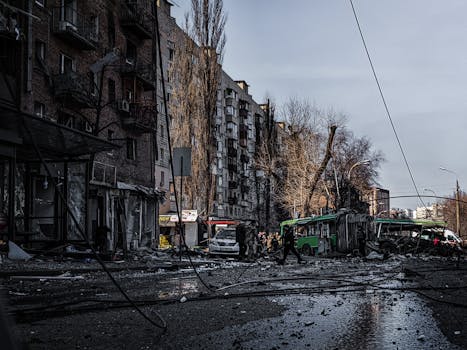
Gen Z's Inheritance: Navigating Climate Change, Economic Instability, and Political Polarization
Gen Z, the generation born roughly between 1997 and 2012, is inheriting a world grappling with unprecedented challenges. From the escalating climate crisis and economic instability to political polarization and social unrest, this generation faces a complex web of interconnected issues unlike any previous generation. This article explores how Gen Z is navigating this "broken system" and what steps they are taking to shape a more sustainable and equitable future.
The Weight of Inherited Problems: Climate Anxiety and Existential Dread
One of the most pressing concerns for Gen Z is climate change. This isn't just an abstract concept; it's a tangible threat impacting their daily lives. Rising sea levels, extreme weather events, and biodiversity loss are not distant possibilities but present realities. This constant exposure fuels a prevalent phenomenon known as climate anxiety or eco-anxiety, a chronic fear of environmental doom.
- Increased mental health challenges: Studies show a direct correlation between climate change awareness and increased rates of anxiety, depression, and stress among young people.
- Activism and advocacy: In response, many Gen Zers are becoming active climate activists, participating in protests, advocating for sustainable policies, and demanding accountability from governments and corporations. This is evident in the rise of movements like Fridays for Future and the increasing popularity of sustainable living practices.
- Career choices: Many are consciously choosing careers in environmental science, renewable energy, and sustainability, reflecting a desire to be part of the solution.
Economic Instability and the Millennial Debt Crisis's Shadow
Gen Z is entering a workforce facing significant economic headwinds. They are inheriting the legacy of the 2008 financial crisis and grappling with the ongoing effects of inflation, rising housing costs, and student debt. While they haven't experienced the same level of homeownership as previous generations, the escalating cost of living makes homeownership an increasingly distant dream for many.
- Gig economy reliance: The rise of the gig economy provides flexibility but often lacks job security, benefits, and consistent income, contributing to financial insecurity.
- Student loan burden: Many Gen Zers face crippling student loan debt, hindering their ability to save, invest, and achieve financial stability. This is further exacerbated by the increasing cost of higher education.
- Wage stagnation: Wages haven't kept pace with inflation, making it difficult for young people to afford basic necessities. This is fueling discussions around living wages and economic inequality.
Political Polarization and the Erosion of Trust
Gen Z is coming of age in a politically polarized world, witnessing deep divisions and a decline in trust in traditional institutions. The spread of misinformation and disinformation through social media adds another layer of complexity.
- Increased political engagement: Despite this, many Gen Zers are actively engaging in politics, seeking to bridge divides and promote inclusivity.
- Demand for political reform: They are calling for electoral reform, campaign finance reform, and greater transparency in government.
- Focus on social justice: Social justice issues, including racial justice, LGBTQ+ rights, and gender equality, are central to their political values, driving their activism and political participation.
Adapting and Innovating: Gen Z's Response to Global Chaos
Despite the daunting challenges, Gen Z is demonstrating resilience and creativity. They are adapting to the changing world, developing new skills, and employing innovative approaches to problem-solving.
- Digital fluency: Their digital fluency allows them to connect, organize, and advocate for change more effectively than previous generations.
- Entrepreneurial spirit: Many are embracing entrepreneurship, creating businesses that address social and environmental issues. Social entrepreneurship is gaining significant traction.
- Emphasis on mental health: There's a growing emphasis on mental health awareness and support, recognizing the importance of emotional well-being in navigating challenging circumstances.
The Path Forward: Collaboration and Systemic Change
Gen Z's ability to navigate the inherited chaos depends on collaboration and systemic change. They need support from older generations, policymakers, and institutions to address these challenges effectively.
- Investing in education and job training: Providing access to affordable education and job training that prepares young people for the future is crucial.
- Implementing sustainable policies: Governments need to implement ambitious climate policies to mitigate the effects of climate change.
- Promoting social justice and equity: Addressing systemic inequalities is essential to creating a more just and equitable society.
The challenges faced by Gen Z are significant, but their resilience, innovation, and commitment to change offer a glimmer of hope. By fostering collaboration, addressing systemic issues, and empowering young people to become agents of change, we can help them build a more sustainable and just future. The future, however, requires a collective effort – a collaboration between generations to address the complexities and inheritances that define this era. The broken systems of the past need repair, and Gen Z, with the right support and opportunities, are positioned to lead the way.




















